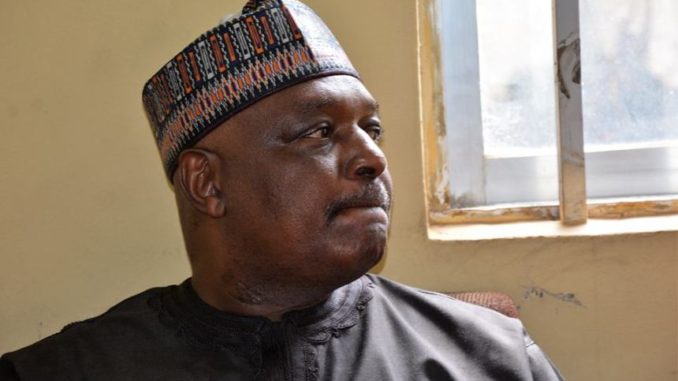
Spending of security votes without rendering account is criminality that most governors and presidents have indulged in since the start of the Fourth Republic. It is gratifying, therefore, that the Court of Appeal underscored this point when it recently gave reasons for affirming the judgement of the lower court, which had convicted a former governor of Taraba State, Jolly Nyame, for the abuse.
Emmanuel Agim, the justice who read the lead judgement in Nyame’s appeal, said there was a pervasive tendency for public officials to treat security votes as their personal entitlements. He decried the fact that the explanation of the defence counsel was along such a perverse and incredulous trajectory. When such funds are not accounted for, or used for the purposes for which they were procured, “then that is clear stealing of public funds or criminal breach of trust,” he affirmed. He bemoaned the proclivity for the public to erroneously see it as part of the global best practice.
This form of public spending has become a colossal conduit for corruption in governance. Some governors are known to have collected as much as N7 billion per annum. This means that, for the eight years that each of them spent in office, N56 billion was spent unaccounted for. This is incredible; more so that the country has since 1999 witnessed an upsurge in kidnapping, robbery and sundry crimes, which have made Nigerians feel more insecure than hitherto.
Corruption, as the jurist rightly observed, is akin to genocide because of its widespread impact on the society. It creams off funds for development, especially in the provision of social infrastructure such as schools, healthcare, water, road, transport and even payment of workers’ salaries and pension benefits. As a result, it seemed senseless to the appellate court for offences like armed robbery and murder to attract capital punishment, whereas public office corruption with its wider implications for the society gets lesser prison terms as stipulated in the Penal Code.
Nyame’s 14-year lower court jail term was reduced to 10 years, while another former governor convict, Joshua Dariye of Plateau State, had his reduced to 12 from 14 years for his own set of offences.
A corruption watchdog, the Socio-Economic Rights and Accountability Project, has alleged that state governments’ security spending ranges between N400 million and N2 billion monthly. More baffling is that most governors don’t make provisions for it in the budget or, when inserted, is hidden in other sub-heads. It was the shocking finding of this newspaper in 2011, when Lagos, Rivers, Imo and Oyo states were the only ones that openly appropriated such expenditure. Other governors just collected as much as they desired from the treasury. This is the height of abuse or impunity in public finance management.
If a governor could reduce the security budget template of N6 billion to N2.5 billion on assumption of office, or, as Musa Kwankwaso, the governor of Kano State between 1999 and 2003, who claimed to have avoided the fund like the plague, then it is indicative of the fact that the spending is suspect and deserves public scrutiny. Kwankwaso said that “security vote anywhere is stealing; I don’t believe in it.” This abuse of office has been condemned by Transparency International, which claimed that federal and state governments in Nigeria had spent $670 million this year, despite the normal votes provided in the budget for security duties – military and police.
Unfortunately, there is a national conspiracy to legitimise this absurd nuance of security maintenance with its general acceptance and spread to other levels of government. Principal officers of legislatures, other state assembly lawmakers, secretaries to government and heads of educational institutions have become part of the fraud. For instance, where a speaker of a state assembly collects N400 million and his deputy, N200 million per annum, which they are not bound to retire, they cannot check the financial excesses of a governor.
In a democracy, nobody trifles with public funds. It is a fact demonstrated in the £1.1 million that members of the British parliament were asked to refund in the 2010 expenses or allowances scandal. The then Prime Minister, Gordon Brown, was not spared either. Criminal charges under the Theft Act were slammed against three MPs. The UK auditor, Thomas Legg, warned, “Taxpayers-funded allowances are not a supplementary source of income.”
This is the ideal we need to subscribe to. The UK sanctions suggest that Nigerians should be roaring in anger and demanding an end to this aberration created by the military, which has now become a huge monster. If the country is truly a democracy, it ought to have done away with the hangover in the past two decades. Public funds must not be spent without proper accountability. The democratic cannons of transparency and accountability should impel all watchdogs of the system embodied in civil society groups, state assemblies and the citizenry to rise up to the occasion by stopping public officials from getting away with this abuse of public trust.
It is criminal for the legislature to acquiesce to brazen abuse of the treasury despite its statutory responsibility of power and control over public funds, as expressed in the 1999 Constitution. To get others punished, the Economic and Financial Crimes Commission should take full advantage of the Court of Appeal ruling.
END

Be the first to comment